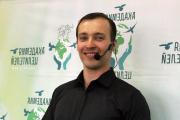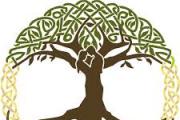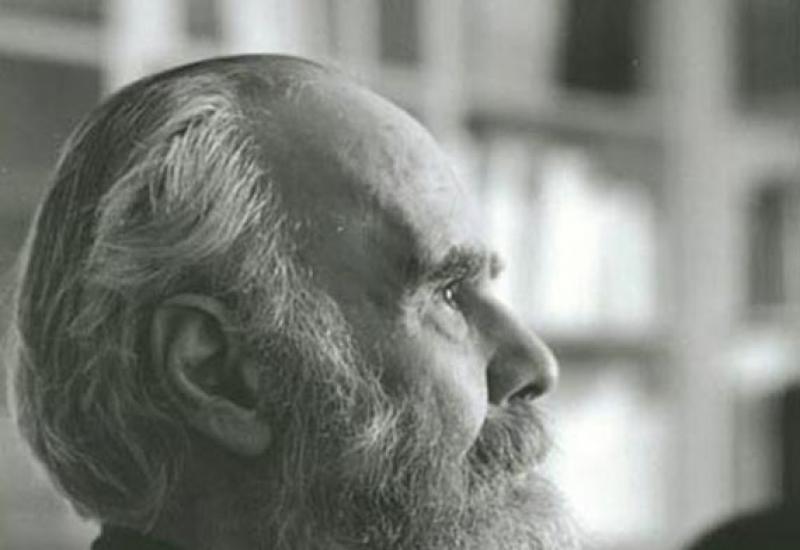3 modern education system in the Russian Federation. Education system in Russia: features, concept, structure and characteristics. Main types of educational institutions
RUSSIAN ACADEMY OF NATIONAL ECONOMY AND PUBLIC SERVICE UNDER THE PRESIDENT OF THE RUSSIAN FEDERATION
VLADIMIR BRANCH
DEPARTMENT OF ECONOMICS
Course: Economics of Sustainable Development
on the topic: Education system at the present stage in the Russian Federation
Completed by: Savateeva E.M.
full-time student,
Scientific supervisor: Avdonina A.M.,
Candidate of Biological Sciences, Associate Professor
Vladimir 2014
Introduction
Conclusion
Applications
Appendix 2
Introduction
At this stage of development of society, education began to play an increasingly important role in it. The global community is now focused on overcoming illiteracy in developing countries and protecting intellectual property in developed countries.
Educational trends have changed from generation to generation. It depended on the needs of society: what kind of specialists it wanted, what these specialists should know, what they should be able to do, and other indicators. Under the influence of these factors, the direction of education and its structure changed, new methods of education and new approaches to pedagogy were introduced.
Nowadays, the indicator of the intellectual development of its population is very important for each country. After all, the further development of the country will depend on this, and it is important that the “furrows” of government are taken over by people who are sufficiently literate and educated.
Also in modern society a term such as “intellectual property” has appeared. It was no longer physical labor that became important, but mental labor. Society began to work more with information: receive, process, store, transmit, etc. This has become global.
And at this stage of education, in my opinion, it is necessary to set the goal of instilling in the younger generation, and not only in them, but in the entire society, the desire for self-development, self-education, so that people are sufficiently diversified.
The purpose of this work is to review and analyze the current state of education at modern stages in Russia.
Education: past and present
The beginning of the formation of the Russian education system should be considered the schools (colleges) at the princely courts of Vladimir Svyatoslavich in Kiev and Yaroslav the Wise in Novgorod, which served as an example for the creation of schools at the courts of other princes. The schools taught literacy and foreign languages.
With the reign of Peter the Great, the active creation of technical educational institutions began, aimed at training engineers.
The main task in the field of education for the Soviet government was the elimination of mass illiteracy of the population, the solution to which was the decree “On the elimination of illiteracy among the population of the RSFSR” of December 26, 1919. The decree established the All-Russian Extraordinary Commission for the Elimination of Literacy under the People's Commissariat of Education of the RSFSR, which led all work in this direction. Schools for adults and literacy centers were actively opened, and the publication of educational literature increased.
Since the 1990s, reform has been carried out in Russian education. Its main directions were a focus on the development of students’ personalities, the formation of knowledge, skills and abilities (competencies), the standardization of education for the continuity of educational programs and the unity of the educational space, the transition to a multi-level system of higher education and the introduction of a unified state exam as a form of combining final exams in school and entrance examinations to universities.
The role of education at the present stage of the country's development is determined by the tasks of Russia's transition to a democratic society, to a rule-of-law state, a market economy, and by the tasks of overcoming the danger of Russia's accumulating lag behind global trends in economic and social development. Education should be included in the main priorities of Russian society and the state.
The current education system lags significantly behind the processes taking place in society. The outdated and overloaded content of today's school education, its isolation from the real needs of life, force many children to pay with their health for the need to master the current curriculum. At the same time, the school does not yet provide the three most important components of the knowledge standard of the new century: computer science (including the ability to search and select information), foreign languages and basic social disciplines (economics and law). Vocational education, in turn, is not yet capable of adequately solving the problem of “personnel shortage” caused by new requirements for the level of qualifications of workers. At the same time, many graduates of vocational education institutions cannot find a job or determine their own “niche” in modern economic life. In the context of economic stratification of society, all these shortcomings of the education system were exacerbated by unequal access to quality education depending on family income.
But another important factor in the development of education at the present stage is the availability and training of sufficiently qualified and competent specialists. But in order for people to take up pedagogy, it is necessary to attract them with something, to give them a reason to be interested in it. The main way is decent wages. But, unfortunately, according to statistics, people who work in the educational sector receive the lowest wages compared to other sectors of the economy. And as a consequence of this, the educational sector is losing specialists.
If you look at foreign experience, then scientific and teaching activities are the most profitable profession. The authorities of foreign countries have long understood that if a large part of the country’s income is invested in scientific and educational activities, then over time these expenses will pay off with the greatest profit.
At this stage in Russia, the concept of development of education and science is at nascent stages, such as Skolkovo. If the state does not further develop this concept, then a situation like in Soviet times, when a “brain drain” occurred, may occur. Russian deputies sometimes adopt projects that only worsen the educational process not only for students, but also for teachers. The current educational sphere is aimed at imitating foreign experience, which, in my opinion, is an indicator of the backwardness of our population. After all, you cannot simply take and introduce a new education system from one country to another. To do this, you need to know a number of factors that are unique to this country: historical, national, religious and other factors. It is necessary to create a Russian education system that, as a result of numerous studies, will be suitable for our population and gradually implement it.
It is also necessary to bring young people out of their “duped state.” For a small number of young people, education is a priority. Nowadays, the majority of today's youth are guided and live by the following slogans: “live while you are young”, “you need to get everything from life” and direct their energy into discos, bad habits, American television series, social networks and other areas of life. We need to attract more and encourage the desire for scientific activity, identify talents and try to develop them.
Modernization of education is a political and national, public and national task; it should not and cannot be carried out as a departmental project. In all developed countries, educational reforms were successful if they were carried out by a strong state government together with society. The interests of society and the state in the field of education do not always coincide with the sectoral interests of the education system itself, and therefore the elaboration and discussion of directions for modernization and development of education should not and cannot be confined within the framework of the educational community and the educational department. All citizens of Russia, the family and parental community, the state, its federal and regional institutions, local governments, the professional and pedagogical community, scientific, cultural, commercial and public institutions - everyone who is interested in the development of education - should become active subjects of educational policy. The goal of modernization of education is to create a mechanism for the sustainable development of the education system, ensuring its compliance with the challenges of the 21st century, the social and economic needs of the country's development, and the needs of the individual, society, and state.
Accessibility, quality and efficiency are the key words of Russia's educational policy at the present stage of its socio-economic development.
Education in numbers at the federal level in modern society
First, it is necessary to analyze how the state funds the educational sector.
Let's look at the number of educational institutions in Russia at this stage. According to the Ministry of Education and Science of the Russian Federation, in 2013. the number of general education organizations (excluding evening (shift) general education organizations) decreased by 4.4% and amounted to 44,436 units. At the same time, the number of state and municipal gymnasiums (by 1.2%), lyceums (by 0.3%) and the number of students in them increased (by 3.7% and 3.2%, respectively).
Compared to 2012, the number of private educational institutions increased by 0.7% and amounted to 720 units, the number of students in them increased by 3.3% and amounted to 94.9 thousand people.
In 2013 the number of professional educational organizations training mid-level specialists decreased by 9% and amounted to 2,703 units. A reduction in the number of professional educational organizations occurred both among state and municipal, as well as private professional educational organizations. Compared to 2012, the number of state and municipal professional educational organizations decreased by 8.7% and amounted to 2,488 units; the number of private professional educational organizations decreased by 16% and amounted to 215 units.
In 2013 (compared to 2012), the share of those accepted for training in professional educational organizations that train mid-level specialists increased by 3.1%. Also in 2013 The trend of redistribution of admission to professional educational organizations that train mid-level specialists in favor of the non-state sector continued. Enrollment in private professional educational organizations in 2013 increased by 31.1%; At the same time, training programs for mid-level specialists are implemented by a number of private educational organizations of higher education; in 2013, the number of such organizations was 112 units.
In 2013, the trend towards further optimization of the number of educational institutions of higher education remained relevant. Thus, the total number of educational institutions of higher education decreased and amounted to 969 units. Accordingly, the number of state and municipal educational organizations of higher education decreased by 31 units, and private educational organizations - by 46 units.
Based on the statistical data presented in Appendix 1-2, we can conclude that the state is reducing the number of educational institutions. The government also aims to make the educational sector the most paid, which will have a bad impact on the overall level of education of the population, because not everyone can currently pay for educational services in full. Compared to the Soviet Union, where the government tried to make education accessible and free from preschool to higher education, now we can observe a completely opposite situation. The government, in my opinion, is trying to make education as difficult as possible.
Next, it is necessary to consider how the state sponsors young specialists in the field of education. Salary in 2013 according to education criteria, which is presented in Appendix 3, as a percentage of the average salary is as follows:
the salary of teaching staff in preschool educational institutions is 94.9%;
the salary of teaching staff of educational institutions of general education in organizations of state and municipal forms of ownership is 96.9%;
the salary of teachers and masters of industrial training in primary and secondary vocational educational institutions is 83.9%;
the salary of teachers of educational institutions of higher professional education is 134.9%.
Having analyzed this indicator, we can conclude that the government does not sufficiently motivate the population to work in the educational sector. If you look at the average salary by sector of the economy, it is now more profitable to go into the financial sector. But despite this, the population still wants to educate the younger generation. If you look at the table presented in Appendix 4, then as of 2013, the number of hired workers in the educational sector is 0.03% greater than the number of those who left.
And for a more complete consideration of the level of education, it is necessary to consider the direct object at which education is directed, that is, the population.
education Russian society federal
Conclusion
Having analyzed the above, we can conclude that at the present stage, education in Russia is not in the best position. Schools are closing, teachers are not paid decent wages, and young people have no incentive to study. The government is not sufficiently interested in the literacy and education of its people. Educational systems are copied from Europe and only worsen the current situation in education.
At this stage we can suggest:
increasing wages for employees of educational institutions;
opening of new schools and proper renovation and modern equipment of existing schools;
conducting psychological tests to identify talents among young people and further develop these talents;
revision of the existing education system, holding scientific conferences on this issue, where one could hear the opinions of many teachers with extensive experience, as well as the opinions of young people on this issue.
All this, in my opinion, will raise our country to a higher level of development, improve the quality of education, and make it more accessible and understandable. After all, in the countries of the Soviet Union, education was given to everyone and it was done absolutely free. Now we also need to make sure that as many people as possible are literate. And these measures must be taken at all levels: federal, regional and municipal.
Applications
Annex 1
Selected performance indicators of educational organizations
2013 In % of 2012 Reference 2012 In % of 2011 State and municipal educational organizations (without evening (shift) educational organizations) 4371697.14503196.9 Private educational organizations 720100.7715104.1 State and municipal professional educational organizations providing training of mid-level specialists 248891.32725102.3 Private professional educational organizations that train mid-level specialists 21584.025698.5 State and municipal educational organizations of higher education 57894.960996.1 Private educational organizations of higher education 39189.543798.0
Appendix 2
Admission to state and municipal professional educational organizations and educational organizations of higher education in 2013 thousand people
Appendix 3
Level of average wages of teaching staff for January-December 2013
Average salary, rubles Including by type of ownership of organizations federal constituent entities of the Russian Federation municipal Teaching staff of preschool educational institutions 23363250323608022132 Teaching staff of educational institutions of general education ownership 29038415024336126010 Teachers and vocational training specialists of educational institutions of primary and secondary vocational education 25144251 082518419215Teachers of educational institutions of higher professional education40428402854761019957
Appendix 4
The number of hired and retired employees in the field of education
Number of hired employees, thousand people Number of retired employees, thousand people 2013 2013 1st quarter 2nd quarter 3rd quarter 4th quarter 1st quarter 2nd quarter 3rd quarter 4th quarter 267.7233.2419.8308.4212.5288.7412.2276.1
Unfortunately, in the modern world, most people do not reach the possible level of development, and from this the person himself, other people, the state, and society lose a lot.
The right to education - a basic and natural human right - aims to satisfy a person’s need for information and directly for training and education. The need for information and education is on a par with the primary human needs: physiological, to ensure safety and security.
The legal definition of education is given in the preamble of the Law of July 10, 1992 N 3266-1 “On Education”, where it is understood as a purposeful process of education and training in the interests of the individual, society, state, accompanied by a statement of the achievement by a citizen (student) of educational levels established by the state (educational qualifications). From the above definition it follows that education is characterized by the presence of two components (processes) - education and training, as well as confirmation of the achievement of the appropriate educational qualification by the student.
It can be noted that education should represent the unity of the processes of learning, upbringing and results.
A more expanded concept of education is contained in the draft Concept of a model Educational Code for the CIS member states.
In it, education is understood as the process of upbringing and training in the interests of the individual, society, and state, focused on preserving, improving and transferring knowledge, transmitting culture to new generations in order to ensure sustainable socio-economic and spiritual development of the country, constant improvement of moral, intellectual, aesthetic and physical state of society.
Education is understood as “a purposeful process of education and training in the interests of the individual, society, and state.”
Education in Russia is a system. In Art. 8 of the Law “On Education” states that education in the Russian Federation is a system. Any system is a form of organization of a certain number of elements, “something whole, representing a unity of regularly located and interconnected parts.”
System (from the Greek systema - a whole made up of parts; connection) - a set of elements that are in relationships and connections with each other, forming a certain integrity, unity. In modern science, the study of systems of various kinds is carried out within the framework of the systems approach, general theory of systems, and various special theories of systems.
The provision of the Law on the systematic nature of Russian education is one of the key ones. Only in the interconnection and consistency of all links of this system is it possible to get rid of unnecessary duplication, “gaps” and inconsistencies between the various levels and educational programs of the Russian educational system and, ultimately, make the educational service high-quality, and the process of providing it to the population effective.
In this regard, V.B.’s remark is correct. Novichkov that the legislator recklessly did not include individuals in the “set of interacting elements” of the education system, because it is the individual, and not society, not the state, who is the root cause, the starting point, the central link of the entire education system, in the absence of which the system itself is not conceivable . The humanistic orientation of the entire legal system of modern Russia, obviously, in the near future will lead to the inclusion of a person in the educational system as an independent subsystem. The introduction of this fourth subsystem will make it possible to more accurately define the rights, obligations and responsibilities of all parties involved in educational legal relations.
One way or another, currently the Russian education system includes three subsystems (or three elements of the system):
Content subsystem. This concept traditionally includes state educational standards and educational programs, since it is these elements that represent the content side of education in a particular country. The presence of detailed and clear standards in all segments of the educational system, as a rule, indicates a highly systematic education as a whole in a given country. According to this indicator, Russia is far from in first place.
Functional subsystem. This subsystem of Russian education includes educational institutions that implement educational programs and state educational standards, regardless of their form of ownership, type and type.
Organizational and managerial subsystem. The organizational and managerial subsystem in Russia is, in the vast majority of cases, three-tier, since responsibility for managing the continuous process of implementing state educational standards is, as a rule, divided between three main management entities - federal government bodies, regional government bodies and local management bodies of educational institutions (administrations of educational institutions). Moreover, such a three-tier management subsystem is also valid for private educational institutions operating in the Russian Federation. The exception is municipal educational institutions - in this case, the organizational and management subsystem is four-tiered: in addition to the three above-mentioned governing entities, municipal education authorities are added, which, within their competence, have the right to give mandatory instructions to the administrations of municipal educational institutions, as well as exercise other powers (Article 31 of the Law on Education).
In its structural section, education, as well as training, is a triune process, characterized by such aspects as assimilation of experience, education of behavioral qualities, physical and mental development. Thus, education is determined by certain ideas about human social functions.
According to the Law of the Russian Federation "On Education", Russian education is a continuous system of successive levels, at each of which state, non-state, and municipal educational institutions of various types and types operate:
Preschool;
General education;
Institutions for orphans and children without parental care;
Professional (primary, secondary special, higher, etc.);
Institutions of additional education;
Other institutions providing educational services.
Preschool education is not compulsory and usually covers children from 3 to 6-7 years old.
Comprehensive secondary school. Education from 7 to 18 years. There are different types of schools, including special schools with in-depth study of certain subjects and for educating children with developmental disabilities.
Primary education usually forms part of secondary education, except in small villages and remote areas. Primary school or the first level of general secondary school covers 4 years, with most children entering school at the age of 6 or 7 years.
Basic general education. At the age of 10, children graduate from primary school and move on to secondary school, where they study for another 5 years. After completing the 9th grade, they are issued a certificate of general secondary education. With it, they can apply for admission to the 10th grade of a school (lyceum or gymnasium), or enroll, for example, in a technical school.
Complete general education. After studying for two more years at school (lyceum or gymnasium), the children take final exams, after which they receive a certificate of complete secondary education.
Higher education. Presented by universities, academies and higher institutes. According to the Federal Law of August 22, 1996 No. 125-FZ “On Higher and Postgraduate Professional Education,” the following types of higher educational institutions are established in the Russian Federation: university, academy, institute. Graduates of these educational institutions receive either a specialist diploma (duration of study - 5 years), or a bachelor's degree (4 years), or a master's degree (6 years). Higher education is considered incomplete if the duration of study is at least 2 years.
Professional education. Vocational education, represented by educational institutions of primary, secondary and higher vocational education.
Primary vocational education. Such education can be obtained at vocational lyceums, technical schools or other institutions of primary vocational education after completing the 9th or 11th grades.
Secondary vocational education. Institutions of secondary vocational education include various technical schools and colleges. They are accepted there after 9th and 11th grades.
Higher professional education. Post-higher education system: postgraduate and doctoral studies.
Modern reforms in the field of education, carried out against the backdrop of economic globalization and Russia’s desire to enter a single educational space, are subordinated to the interests of a united Europe, which determines the dependence of states in various areas of public life.
Among the main documents aimed at creating a unified European educational system is the Bologna Declaration, signed in 1999 by the ministers of education of 29 countries.
The basis for the Bologna Declaration was the university charter Magna Charta Universitatum (Bologna 1988) and the Sorbonne Declaration - “Joint Declaration on the Harmonization of the Architecture of the European Higher Education System” (1998), among the main priorities putting forward the ideas of the fundamental principles of a single European space and a single higher education zones for the development of the European continent.
The Bologna Declaration of 1999 (signed by Russia in 2003) defines integration not only in the education systems of European countries, but also in other areas. At the same time, education itself acts as a powerful factor in the rapprochement of national states and the formation of transnational socio-state systems.
As you can see, plans to create a unified educational environment largely determine the goals of not only educational, but also cultural, scientific, economic integration of the states of the European region, and in the future - the construction of supranational states of a homogeneous type of economic management.
Russia's entry into the Bologna process is one of the elements of global influence on the internal policy of the state and at the same time a factor in the transformation of the Russian education system.
In the processes of globalization, Russia's interests in the European region can be significantly opposed to the similar interests of European states. Moreover, in the existing statements of Russia's intentions by the end of the first decade of the 21st century. becoming part of the common European higher education system are bound by political barriers, in which equal partnership in this area can only be granted to countries of the European Union.
On the way to a free educational space, Russia experiences a lot of obstacles, not only external, but internal. The problems lie in finding a model of education reforms that is adequate to a certain historical moment, taking into account not only global processes, but also the interests of sustainable development of Russia in the short and long term.
The task of the domestic education system in modern conditions is to go through the transition period quickly, competently and effectively, to equip Russian citizens with the fundamental and practical knowledge that they need not only today, but will also need in the future.
The development of the Russian education system is determined by world trends of globalization. Socio-economic changes in the country that have occurred over the past 15 years have led to an internal crisis in the educational system.
Russia is taking an active part in creating a unified international educational space. Since the 90s, a broad modernization of the Russian education system has been carried out, aimed at its democratization and development “as an open state-social system.”
Under education system is understood a set of educational programs and standards, a network of educational institutions and governing bodies, as well as a set of principles that determine the functioning of the system. The nature of the education system in any state is determined by the socio-economic, political system, cultural, historical and national characteristics of the country.
Principles of state policy in education(See the Law of the Russian Federation “On Education” dated 01.01.05, Art. 2.)
the humanistic nature of education, the priority of universal human values, the individual’s right to free development;
unity of federal education with the right to the uniqueness of the formation of national and regional cultures;
accessibility of education and adaptability of the education system to the needs of students;
the secular nature of education in government institutions;
freedom and pluralism in education;
democratic, state-public nature of management, independence of educational institutions.
Educational institutions(See RF Law “On Education”, Art. 12)
Educational institutions, according to their organizational and legal forms, can be state, municipal, non-state (private, institutions of public and religious organizations (associations). Educational institutions include the following types of institutions:
Preschool: kindergartens.
General education(primary general, basic general, secondary (complete) general education): schools, lyceums, gymnasiums.
Professional(primary, secondary, higher and postgraduate professional education): schools, colleges, educational institutions, academies, institutes, universities, postgraduate schools.
Special(correctional) for teaching children with developmental disabilities: for the hearing impaired, the visually impaired. Institutions additional education for children: music and art schools, centers, clubs, courses.
Institutions for orphans left without parental care (legal representatives): boarding schools, orphanages.
Institutions additional education for adults: courses, institutes for advanced training, retraining.
Additional education (Article 26). Additional educational programs and additional educational services are implemented in order to fully meet the educational needs of citizens, society, and the state.
Educational programs(See Law “On Education”, Art. 9).
The educational program determines the content of education at a certain level and focus. Programs are divided into two types: general education (basic and additional), aimed “at the formation of a general culture of the individual, its adaptation to life in society,” and professional (basic and additional), aimed “at solving the problems of subsequent improvement of professional and general educational levels, training specialists with appropriate qualifications.” Educational institutions carrying out the educational process implement one or more educational programs.
In Ekaterinburg educational institution No. 1, three educational programs are being implemented: basic general education (9 grades), secondary (complete) general education (10 - 11 grades), secondary vocational education (1st - 3rd year).
Citizens can use different forms of education (Article 10): in an educational institution - in the form of full-time, part-time (evening), correspondence; in the form of family education, self-education, external studies.
Education authorities(See Law “On Education”, Art. 37)
Education management bodies include federal (national), republican, regional, regional, autonomous regions, municipal (local). Each level of management bodies has its own competence. In general, management is the process of making decisions, adopting laws in the field of education, planning, organizing, regulating and monitoring the activities of educational services. Functions of administrative bodies: development of educational programs and standards, accreditation and certification of institutions and teachers, formation of educational infrastructure, financing, forecasting the development of education. Management bodies manage the production of textbooks, teaching aids and tools, organize training and retraining of personnel for education, and ensure the development of pedagogical science.
Educational management bodies of UOR No. 1 Yekaterinburg: Ministry of Education of the Russian Federation (Minister of Education of the Russian Federation - Fursenko A.A.); Ministry of General and Professional Education of the Sverdlovsk Region (Minister of MOPO-Nesterov V.V.);
Educational standards(v.7)
State educational standards (including federal and regional components) are the mandatory minimum content of each basic general education and professional program with a level of mastery that ensures further education or work. The State Educational Standard of Secondary Professional Education for Educational Education No. 1 was approved in 2002 by the State Committee of the Russian Federation for Physical Culture and Exercise. It contains state requirements for the minimum content and level of training of graduates in specialty 0307 “Physical Education” (basic level of Secondary Professional Education). Qualification: physical education and physical education teacher.
Currently, Russian universities are moving to a system of multi-level education, including pedagogical education, in connection with Russia’s entry into the Bologna process and the adoption of mandatory approaches to the strategy for the development of vocational education in the conditions of a single European educational space, incl. transition to the “bachelor-master” system. The system includes the following levels: 1) general higher education – duration of study is 2 years; 2) basic higher pedagogical education ( bachelor's degree) – duration of study 2 – 3 years; 3) complete higher pedagogical education ( master's degree) – duration of study is 1 – 2 years.
1. The connection of education with specific conditions and goals of state policy in the context of the transition to market relations.
2. Preservation of the main provisions that have developed in the Russian school: the priority of the educational sphere, the secular nature of education, joint education and upbringing of people of both sexes, a combination of collective, group and individual forms of the educational process.
3. Professional self-determination of youth, taking into account social needs, regional, national and general cultural traditions of the peoples of Russia.
4. The diversity of educational institutions, the diversity of forms of education in state and non-state educational institutions with and without separation from work.
5. The democratic nature of the education system.
Established education management system performs functions of regulation, coordination and control at the federal, regional and local levels.
All education authorities are controlled Ministry of General and Professional Education of the Russian Federation, including educational institutions under its jurisdiction.
State governing bodies carry out licensing and accreditation of both state and non-state educational institutions, justify targeted financial and other costs for the needs of the development of regional education systems, direct financing of the activities of educational institutions, develop standards for their financing, form the structures of educational systems, develop a list of professions and specialties , on which vocational training is conducted in the country.
The most important function state educational authorities is control implementation of the legislative framework in the field of education, implementation of educational standards and execution of budgetary and financial discipline.
Control state and municipal educational institution is carried out by an administrator (head, manager, director, rector, chief), who is hired, appointed or elected to a leadership position in accordance with the charter of the educational institution.
Management non-state educational institution It is carried out by the founder or, in agreement with him, by the board of trustees formed by the founder.
At the present stage of development, there is a growing need for a new reform of the Russian education system. Her the main task– to ease the state’s burden of maintaining the school at all its levels, to turn both higher and secondary schools towards the market.
In the field of management, it is planned to significantly expand the rights of municipal bodies and individual educational institutions based on the autonomy of educational institutions and strengthening the public components of control and management. Significant changes are expected in the area of financing.
Preparing the teacher for the lesson; thematic and lesson planning. Analysis and self-assessment of the lesson.
Lesson preparation- this is the development of a set of measures, the choice of such an organization of the educational process, which in given specific conditions ensures the highest final result.
There are three stages in teacher preparation for a lesson: diagnostics, forecasting, design (planning).
In this case, it is assumed that the teacher knows the factual material well and is fluent in his subject.
Preparatory work comes down to “adjusting” educational information to the capabilities of the class, assessing and choosing a scheme for organizing cognitive work and collective cooperation that will give the maximum result. To choose the optimal scheme for conducting a lesson, it is necessary to calculate an algorithm for preparing a lesson, the sequential implementation of the steps of which ensures that all important factors and circumstances are taken into account, the effectiveness of the future lesson depends on them.
1. The implementation of the algorithm begins with diagnosing specific conditions. Diagnostics consists in finding out all the circumstances of the lesson: the students’ capabilities; motives for their activities and behavior; requests and inclinations; interests and abilities; required level of training; the nature of the educational material, its features and practical significance; lesson structure; in a careful analysis of all the time spent in the educational process (repetition of basic knowledge, assimilation of new information, consolidation and systematization, control and correction of knowledge and skills).
This stage ends with receiving diagnostic lesson card, which clearly shows the effect of the factors that determine the effectiveness of the lesson.
2. Forecasting is aimed at assessing various options for conducting a future lesson and selecting the optimal one according to the accepted criterion. Modern forecasting technology allows you to display quantitative indicator of lesson effectiveness in the following way. The volume of knowledge (skills), the formation of which is the goal of the lesson, is taken as 100%. The influence of interfering factors reduces this ideal indicator. The amount of losses is subtracted from the ideal result and determines the real indicator of the effectiveness of the lesson according to the scheme conceived by the teacher. If the indicator satisfies the teacher, he proceeds to the final stage of lesson preparation - planning.
3. Design(planning) – the final stage of lesson preparation, which ends with the creation programs for managing student cognitive activity. A management program is a short and specific, arbitrarily compiled document in which the teacher records important aspects of process management for him.
At the initial stage of teaching activity, you should write detailed lesson plans, which should reflect the following points:
– date of the lesson and its number according to the thematic plan;
– the name of the topic of the lesson and the class in which it is taught;
– goals and objectives of education, upbringing, development of schoolchildren;
– the structure of the lesson, indicating the sequence of its stages and the approximate distribution of time among these stages;
– methods and techniques of the teacher’s work in each part of the lesson;
– educational equipment necessary for conducting the lesson;
- homework assignment.
REPORT: “BASIC PRINCIPLES OF MODERN EDUCATION”
MODERN EDUCATION IS FLEXIBLE NETWORKS BUILT ON THE BASE OF QUALITY, KNOWLEDGE AND PERSONNEL MANAGEMENT
Over the past 20 years, fundamentally new learning models have emerged and developed in the Russian educational space, more flexible and adapted to the needs of the market, and more open to consumer needs.
In modern conditions, there is a search for forms and methods that contribute to the formation of a new type of personality, not only knowledgeable, but also able to freely navigate the complex problems of modern society.
The education system should help to reveal creative abilities, the formation of extraordinary thinking, and a free personality.
THE INTERNATIONAL COMMISSION ON EDUCATION, SCIENCE AND CULTURE AT THE UN (UNESCO) DECLARED TWO BASIC PRINCIPLES OF MODERN EDUCATION: “EDUCATION FOR ALL” AND “LIFELONG EDUCATION”.
Of course, no one doubts the correctness of this approach to building an education system. But a number of problems arise. Distance education helps in solving problems. What is it? This is “distance” learning, when the teacher and student are separated spatially. Naturally, new technologies for presenting educational materials are used.
The condition for the development of distance education was modern achievements in the field of educational technologies, media and communications, the rapid development and widespread use of various technical means.
THERE ARE THREE TYPES OF DISTANCE TECHNOLOGIES USED IN THE TRAINING PROCESS.
1. paper-based case technology (educational and methodological aids, called workbooks, which are accompanied by a tutor.)
Tutormaintains telephone, postal and other communications with students, and can also directly meet with students at counseling centers or educational centers.
2. television-satellite. It is very expensive and so far little used. Its main drawback is weak interactivity, that is, feedback.
3.online learning, or network technology. Most often, in the process of distance learning, all of the above technologies are used in different proportions.
TRENDS OF CHANGES IN THE GENERAL SITUATION OF EDUCATION AT THE END OF THE XX CENTURY COINCIDE WITH THE GENERAL PRINCIPLES OF ITS REFORM IN THE WORLD AND IN RUSSIA. THEY APPLY TO ALL LEVELS OF THE GENERAL EDUCATIONAL SYSTEM, TO ALL EDUCATION.
THESE ARE THE FOLLOWING BASIC PRINCIPLES:
- integration all the educational forces of society, the organic unity of schools and other special institutions for the purpose of educating the younger generations;
- humanization- increasing attention to the personality of each child as the highest social value of society, focusing on the formation of a citizen with high intellectual, moral and physical qualities;
- differentiation and individualization, creating conditions for the full manifestation and development of the abilities of each student;
- democratization, creating prerequisites for the development of activity, initiative and creativity of students and teachers, interested interaction between teachers and students, broad public participation in education management.
The implementation of these principles presupposes a change in the very appearance of the educational system, its content and organizational forms, which is most fully reflected in the project for the development of the national school.
PRIMARY EDUCATION IS THE FOUNDATION OF ALL FURTHER GENERAL AND ANY SPECIAL EDUCATION.
The main priority areas for the development of primary education in the context of the modernization of Russian education are improving the quality of education, creating a modern system of continuous education.
When selecting the content of continuing education, the concept pays special attention to those principles that are new and point the way to transforming primary schools.
PRINCIPLE OF HUMANIZATION OF EDUCATION CONTENT
is understood as a statement of the basic principles of humanism - respect and a friendly attitude towards every person, as the exclusion of coercion and violence against the student’s personality.
PRINCIPLE OF HUMANITARIZATION OF EDUCATION CONTENT
is considered as giving special importance to the subjects of the humanitarian and artistic-aesthetic cycle (primarily influencing the social and personal development of the child), increasing the share of various creative activities of children, as well as strengthening the humanitarian orientation of the subjects of the natural science and mathematical cycles.
PRINCIPLE OF VARIABILITY AND INVARIANCE
assumes the possibility of implementing various conceptual approaches in the content of education, taking into account the development of modern science, the needs of society and regional characteristics. At the same time, it is necessary to maintain an invariant minimum of education, which ensures the right of every child - a citizen of the Russian Federation - to receive equal preschool and primary education with others. This principle is implemented through different levels of educational content, in which the upper level of education significantly exceeds the invariant level of requirements.
PROGRESSIONALITY AS A PRINCIPLE OF SELECTION OF EDUCATIONAL CONTENT
is understood as preserving the intrinsic value of each stage of development, maximizing the use of the acquisitions of the previous stage of development, ensuring the possibility of a painless transition and successful functioning of the child at the next stage of development.
PRINCIPLE OF DIFFERENTIATION OF EDUCATIONAL CONTENT
requires taking into account the child’s abilities and capabilities and the individual pace of his progress. In relation to the education of children of primary school age, this is understood as the creation of favorable conditions for the development of children with both high and low learning abilities.
INTEGRATION PRINCIPLE
requires the selection of such educational content that will ensure the integrity of the child’s perception of the world around him, awareness of the various connections between its objects and phenomena. It will also allow reducing the child’s overall educational load without loss of quality of education.
CULTUROLOGICAL PRINCIPLE
is understood as creating conditions for the general development of children, the formation of their culture and erudition, as providing each child with the most complete possible (taking into account age characteristics) acquaintance with the achievements and development of the culture of modern society. The cultural principle allows each child to develop a variety of cognitive interests.
IN 1996, THE IMPLEMENTATION OF THREE EDUCATION SYSTEMS INTO PRIMARY SCHOOL BEGAN:
– L.V. Zankov’s system (system of optimal general development);
– the system of D.B. Elkonin-V.V. Davydov, which have closed educational and methodological kits (hereinafter referred to as ECM);
– updated traditional system
TODAY THERE ARE DOZENS OF VARIABLE MODELS IN THE TRADITIONAL SYSTEM
“Harmony” (director N.B. Istomina),
“Primary school of the XXI century” (headed by N.F. Vinogradova),
“School of Russia” (head A.A. Pleshakov),
“Promising Primary School” (head R.G. Churikova),
“School 2010–” and others,
They are aimed at implementing the principles of developmental education and provide the opportunity to work in a system of alternative models; they open up ways to use new information technologies, in which the main reference point is the child, his activities, prospects for the development of his personality in the information society, as well as the use of technology for creative development by A.Z. Rakhimov, which is based on the pedagogical ideas of V.V. Davydov.
FUNDAMENTAL DIDACTIC PRINCIPLES
Educational complex "SCHOOL OF RUSSIA"
Principle of continuity
The principle of creativity
The principle of differentiation and individualization of training
Operating principle
The principle of a holistic view of the world
The principle of psychological comfort
The principle of variability
INDEPENDENT INTERNATIONAL RESEARCHPIRLS, HAVE SHOWN THAT THE SCHOOL OF RUSSIA EMC PROVIDES THE BEST RESULTS IN RUSSIA, REFLECTING:
priority of understanding the text over its reproduction;
cause-and-effect, analytical approach to working with text;
emphasis on one’s own reasoned judgment;
informal, entertaining nature of the questions;
completeness of tools that form complex skills in working with text;
SOME RESULTS OF THE FINAL COMPREHENSIVE WORK WITHIN THE FRAMEWORK OF THE EXPERIMENTAL APPROBATION OF THE FSES CONDUCTED IN 15 REGIONS OF RUSSIA IN 2009.
(SUCCESS IN COMPLETING TASKS IN SPECIFIC SUBJECTS)
First-graders who studied at the educational complex “SCHOOL OF RUSSIA” showed the highest preparation in the subjects “Mathematics” and “The World Around us”.
To ensure the further implementation of the objectives of the concept of modernization of Russian education, to solve the problems facing the education system, it is also determined for the development of primary schools The main task of primary education is the implementation of student-centered education in primary school.
Feature of the new primary school is that it focuses on formation and development of educational activities in children– the ability to learn, without which it is impossible to build a system of continuous education in the future; development of creativity, self-development, acquisition of leadership qualities.
At the same time, person-centered training should become the main one.
Constructing the learning process in this way is fundamental changes the student's position- the student is responsible for his own mistakes, successes, and achievements. He actively participates in every step of learning - accepts a learning task, analyzes ways to solve it, puts forward hypotheses, determines the causes of errors, etc.
THE MAIN GOAL OF THE PRIMARY LEVEL is to educate primary school children at a qualitatively new level of education, to fully promote the spiritual and civic development of children, and to provide sustainable motivation for learning, knowledge, and creativity.
FOR PERSONAL SELF-DEVELOPMENT IT IS NECESSARY TO IMPLEMENT THE FOLLOWING PRINCIPLES:
the principle of activity, where the student “discovers knowledge in the process of his own activity”;
the principle of a holistic view of the world;
the principle of psychological comfort (creating a friendly atmosphere at school);
principle of variability (selection of the optimal option);
principle of creativity.
Differentiated learning is being introduced to relieve student stress.
Primary school operates according to the traditional system with developmental elements in teaching.
PRINCIPLE OF CONFORMITY TO NATURE
another one of the basic principles of the modern education system, although well known. The luminaries of pedagogy worked on its justification and comprehensive verification: Ya.A. Comenius, J. Locke, J.J. Russo, I.G. Pestalozzi, A. Disterweg, K.D. Ushinsky, A.S. Makarenko.
All over the world, children are taught and raised in harmony with nature. The principle of conformity to nature is one of the fundamental principles in modern education. For children with mental retardation, separate classes with a gentle teaching regime are created. Competitions and Olympiads are held to identify gifted and talented children. Universities are already looking for and often finding “their applicant” in the middle classes. But this, of course, is just the beginning.
Relying on the principle of conformity with nature is the only way to avoid overloading children with learning, to protect their health, and to prevent the development of a complex of fear of school and hatred of it.
THERE ARE MANY ATTEMPTES TO DEVELOP A SYSTEM OF DIDACTICAL PRINCIPLES IN THE WORKS OF RESEARCHERS OF OUR TIME.
S.P.BARANOV
IT HIGHLIGHTS THE FOLLOWING PRINCIPLES OF TRAINING:
1) educational nature of training;
2) scientific nature of training;
3) consciousness of learning;
4) the principle of accessibility;
5) visibility of training;
6) the principle of consciousness and active learning;
7) strength of training;
8) individualization of training.
N.A. SOROKIN
proposes to include in the above system the principle of connection between theory and practice and does not consider it necessary to include in the system the educational nature of teaching as a principle of didactics.
I.P.PODLASYY
believes that the principle of individualization of learning should not be included in the system of didactic principles, but like N.A. Sorokin, he introduces into this system the principle of connecting theory with practice and the principle of emotionality in learning.
ANALYSIS OF DIFFERENT APPROACHES TO SYSTEMATIZATION OF TEACHING PRINCIPLES ALLOWS TO IDENTIFY AS FUNDAMENTAL, RECOGNIZED BY THE MOST DIDACTICS,
THE FOLLOWING PRINCIPLES:
1) scientific nature;
2) accessibility;
3) consciousness and activity;
4) visibility;
5) systematicity and consistency;
6) strength;
7) individualization and differentiation.
In modern didactics, it is an established position that the principles of teaching are historically specific and reflect pressing social needs.
Thus, the number of principles arising from the laws of the learning process cannot be constant. It is known that our knowledge is not limited; we can assume that not all already discovered patterns are reflected in the formulation of principles and, perhaps, over time we will learn about new patterns that require the formulation of new principles.
Under the influence of social progress and scientific achievements, as new patterns of teaching are identified and teachers gain experience, they are modified and improved. Modern principles determine the requirements for all components of the educational process - logic, goals and objectives, formation of content, choice of forms and methods, stimulation, planning and analysis of results.
Modern ICTs play a huge role in improving the quality of training and education, allowing a person to adapt to the environment more successfully and quickly, therefore, when learning using ICT tools, the principle of accessibility plays an important role.
TO SUM UP WHAT HAS BEEN SAID, I WOULD LIKE TO EMPHASIZE:
The success of education depends on the child’s desire to learn and on his independent activity.
The wisdom of the desert inhabitants says: “You can lead a camel to water, but you cannot force him to drink.”
This wisdom reflects basic principle of training- you can create all the necessary conditions and prerequisites for learning, but knowledge itself can only occur when the student WANTS to learn.
The desire to learn is, first of all, an awareness of the importance of this activity for the entire future life of a person, it is an understanding of the dependence of success and well-being on the quality of acquired knowledge, skills and abilities. Accordingly, the need for them.
Another wisdom formulated by an ancient Chinese philosopher teaches us: “Tell me and I will forget. Show me and I will remember. Let me act on my own and I will understand.”
That's how another principle learning - OWN ACTIVITY.
Activity in one type of activity or another is directly related to independence. Hence the priorities that are becoming more and more obvious in world pedagogy
THE NEED FOR TRAINING AND THE ACTIVITY OF STUDENTS ARE DETERMINED BY THE ADEQUACY OF EDUCATIONAL GOALS TO THE NEEDS OF SOCIETY DEVELOPMENT.
If the school is able to create conditions for the education of an independently thinking individual who is able to solve the problems of professional guidance and advanced training throughout his life quite painlessly for himself, who is able to adapt to the rapidly changing socio-economic situation of the information society, then both society and each member of this society will realize the importance schools as an essential structural element of the state, recognizes the need for such education.
We are on the threshold of new changes.














